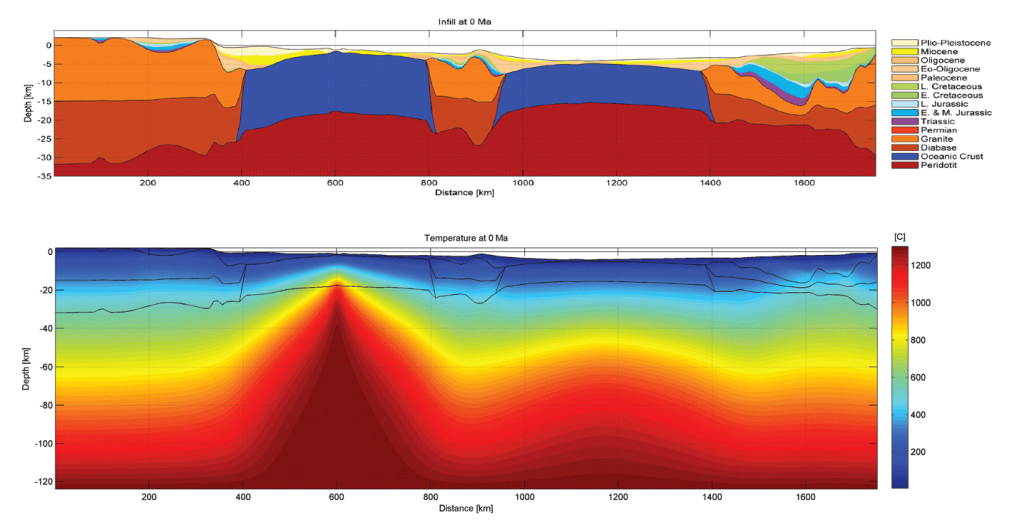Impact of micro-continent formation on petroleum systems on Greenland, Jan Mayen, and Norway
The objective of this case study was to explore how the formation of the Jan Mayen micro-continent affected the petroleum systems of Greenland, Jan Mayen, and Norway. During the final opening of the North Atlantic, breakup first occurred between Norway and the future micro-continent Jan Mayen. A subsequent westward ridge jump formed the present spreading system between Greenland and Jan Mayen.
Key Questions
- How do multiple breakup events affect nearby sediments and source rock maturity?
- What are the causes for the uplift and erosion of Greenland?
- What are the effects of magmatic underplating, sill intrusions, and extrusive lava flows?
Results
All these objectives were addressed within TecMod based reconstructions of multiple interpretations of an over 1600 km long transect spanning from Greenland over Jan Mayen to the Møre margin offshore Norway. Striking findings included the discovery of remnant heat beneath the Møre margin stemming from the first breakup event and valuable new insights into Jurassic source rock maturity.

